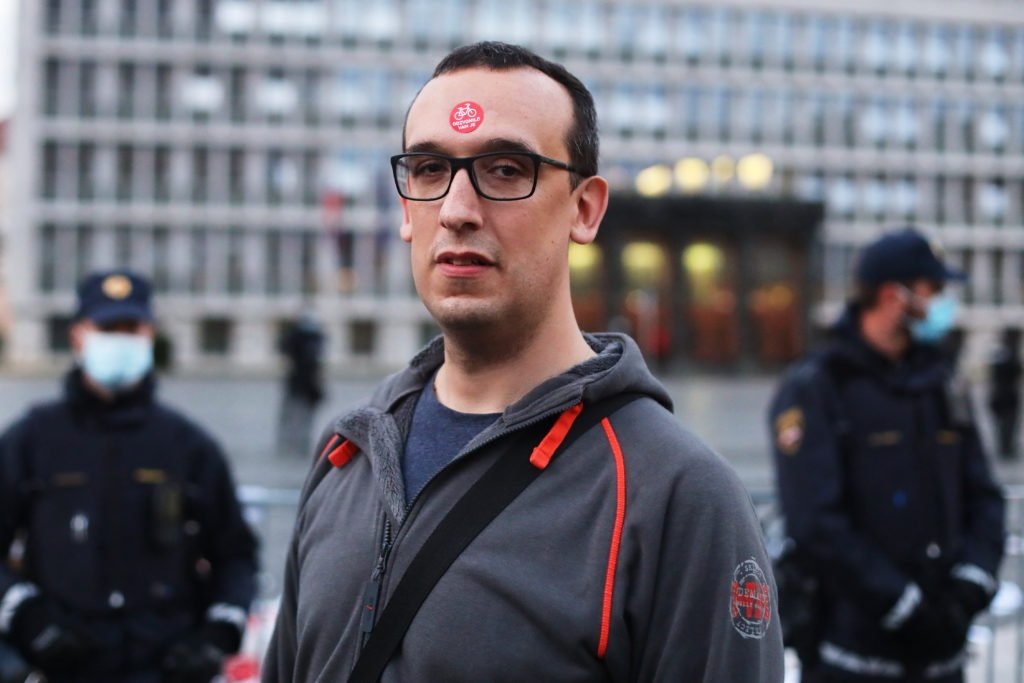Our editorial office recently received a criminal offense report, which was addressed to the Police and the District State Prosecutor’s Office in Ljubljana. A complaint against Ivan Gale was recently sent to the media, which is based on suspicion of committing a criminal offense, as he gave incorrect information in the investigation of the business of the Agency of the Republic of Slovenia for Commodity Reserves, which purchased medical ventilators through the company Geneplanet. The anonymous complaint reveals details about the high-profile events, namely, Gale’s reveal of the “controversial” transactions on the show Tarča, after which, according to the notifier, house searches were illegally carried out.
The person who filed the criminal complaint, says Ivan Gale committed a crime, Bureau of Investigation (Nacionalni preiskovalni urad – referred to as the NPU). The first claim was that the former director of the Agency for Commodity Reserves, Anton Zakrajšek, had to sign a contract with Geneplanet for the purchase of 220 fans at the request of the Minister of the Economy, Zdravko Počivalšek, because Počivalšek ordered Zakrajšek to immediately pay Geneplanet the advance. The bank guarantee, Gale said, only came later. He also said that the company did not deliver the fans on time and that the deal allegedly caused damage to the public funds.
At the time of filing the aforementioned criminal complaint, the suspect Ivan Gale allegedly knew that the previously mentioned allegations were not true, but the latter filed the criminal complaint nonetheless, all with the intention of harming the persons mentioned above or gaining non-material benefit. As an employee of the Agency for Commodity Reserves, the suspect knew who was in charge of the selection process, how the selection process was being conducted, and what the competencies of individual stakeholders in the procedure were; however, he did not even provide the evidence and facts, based on which he claimed that Počivalšek intervened in the contract, in the manner, specified in the criminal complaint.
A complaint against the conduct of the staff of the National Bureau of Investigation also arrived
Based on the initiative of the National Bureau of Investigation, the Specialized State Prosecutor’s Office of the Republic of Slovenia submitted a proposal for an order for a house search of several persons as part of the investigation on suspicion of committing a criminal offense of damaging the public funds. According to the person who filed the complaint, the NPU did not investigate the facts prior to the issuance of the application for the house search order and stated that no pecuniary damage had occurred in connection with the Geneplanet contract. According to the anonymous person who filed the complaint, the law enforcement authorities should have investigated the circumstances described above before ordering the house searches themselves.
As the anonymous person further explained, the house search is undoubtedly an interference with the human rights that each citizen has, by law, and the inviolability of an apartment, which the repressive authorities can only search if the legal conditions and public interest for it are met. Therefore, it is all the more important that, in order to protect the constitutional human rights of the investigated persons, all important and relevant circumstances are established when assessing the justification of the reasons for issuing a search warrant, to make sure that such an intervention is not illegal.
If the accusations against Gale are confirmed, he will be charged due to a false criminal complaint
Reporting that someone has committed a crime, even though the informant knows that the accused person has not committed it, is punishable by imprisonment for up to two years. The same penalty is imposed on anyone who plants the traces of a criminal offense, or otherwise causes criminal proceedings for a criminal offence, for which the perpetrator is prosecuted ex officio, to be instituted against someone for whom the person filing the complaint knows he did not actually commit a crime.
If one of the two acts is committed by an official, the penalty is imprisonment for up to three years. Whoever declares himself to have committed a crime which is prosecuted ex officio, even though he has not committed it, is punished by a fine. The same penalty is imposed if a person reports that a criminal offense, which is prosecuted ex officio, has been committed, even though he knows that such an offense has not been committed, thereby causing the public authorities to take action.

